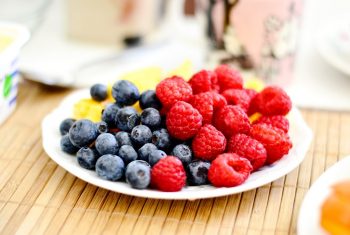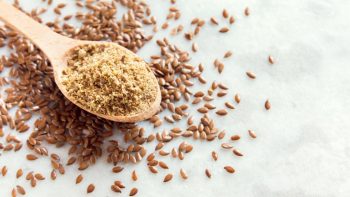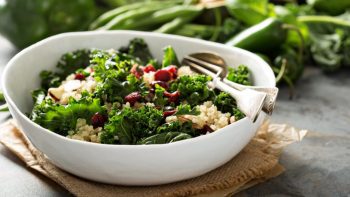Are you wanting to move your health in a positive direction but unsure of the best next step? Confused by conflicting advice and information overload? If so, perhaps this post will pave the way forward.
To me, it makes good sense to start with an awareness of which risk factors are the most important for our health and longevity. We can then focus on those first as we move toward a healthier lifestyle.
What Are the Leading Risk Factors?
According to this World Health Organization report, the leading global risks for death in the world are high blood pressure, tobacco use, high blood glucose, physical inactivity, and overweight and obesity. These are responsible for raising the risk of chronic diseases such as heart disease, diabetes, and some cancers. Further, the report states that these same five risk factors, along with alcohol use, high cholesterol and low fruit and vegetable intake account for a whopping 61% of cardiovascular deaths.
What Can We Do About Our Risk Factors?
Clearly, our genetic makeup is only part of the health equation. We know now that we have the potential to significantly reduce our risk of leading diseases through our lifestyle choices. Therefore, choosing to exercise and abstain from tobacco and alcohol use is important. Research also shows that simply adding certain plants to our daily eating routine can significantly reduce the remaining risk factors. Often as much as medication, and without the side effects.
Try incorporating one or more of the following four powerful plants to your diet on a regular basis:
- Berries

If your risk factor is low fruit and vegetable intake, berries are the best of the best in the fruit category. That’s because, while increasing your fruit intake, you’ll also help control blood pressure, blood sugars, body weight, “bad” cholesterol, and diabetes (see here). In other words, berries may help all of the diet-related risk factors at once! The bright colors of berries tells us they are high in health promoting antioxidants—averaging nearly ten times more antioxidants than other fruits and vegetables.
- Hibiscus Tea
Is high blood pressure a problem for you? Drinking two cups of strong hibiscus tea is a simple addition to your daily routine that could lower blood pressure as much as the starting dose of one frequently prescribed medication (see here).
- Ground Flaxseeds
 Another amazing way to reduce high blood pressure is to incorporate ground flaxseed into our food. It can also help lower our blood glucose and cholesterol. For more information about this true superfood, read my blog post about flaxseeds.
Another amazing way to reduce high blood pressure is to incorporate ground flaxseed into our food. It can also help lower our blood glucose and cholesterol. For more information about this true superfood, read my blog post about flaxseeds.
Consider mixing a tablespoon (or two!) into oatmeal, smoothies, soups and/or stews daily. It can also be used in baking as an egg replacement (see here).
- Greens
 When weight loss is a challenge, increasing greens may help, as it addresses the risk factor of low fruit and vegetable intake. Of all the whole (unprocessed) foods, dark green leafy vegetables offer the most nutrition per calorie. They are “the healthiest food on the planet” according to Michael Greger, MD. And whole-food plant-based weight loss guru, Joel Fuhrman, MD, states that eating large portions of greens daily is the key to weight loss success.
When weight loss is a challenge, increasing greens may help, as it addresses the risk factor of low fruit and vegetable intake. Of all the whole (unprocessed) foods, dark green leafy vegetables offer the most nutrition per calorie. They are “the healthiest food on the planet” according to Michael Greger, MD. And whole-food plant-based weight loss guru, Joel Fuhrman, MD, states that eating large portions of greens daily is the key to weight loss success.
Give preference to low-oxalate greens, such as kale and arugula. High-oxalate greens like spinach, beet greens and chard are best eaten in smaller quantities (see here).
Note that if you are taking warfarin (also known as Coumadin), speak with your physician before eating more greens. Your dose of medication may need to be adjusted to accommodate your intake of greens.
The Best Next Step
With this information in hand, the best next step is the one that you will actually take. As a Wellness Coach, when it comes to trying to create new habits, I advocate for setting very realistic goals along with a curious, experimental, and self-compassionate mindset. Adopting and sustaining new habits can be difficult. That’s why creating only one new habit at a time, whether it is drinking hibiscus tea, eating greens, or anything else, is sometimes the best way to go. But change is possible and when it comes to our health, totally worth the effort
 Teresa Ford graduated from the Main Street Vegan Academy in 2014. She is a Mayo Clinic Certified Wellness Coach with a Nutritional Science degree and years of experience in the field of clinical research. Her passion is inspiring people toward healthier, plant-based eating through her company, Take Root. Find her also on Facebook and Instagram.
Teresa Ford graduated from the Main Street Vegan Academy in 2014. She is a Mayo Clinic Certified Wellness Coach with a Nutritional Science degree and years of experience in the field of clinical research. Her passion is inspiring people toward healthier, plant-based eating through her company, Take Root. Find her also on Facebook and Instagram.

